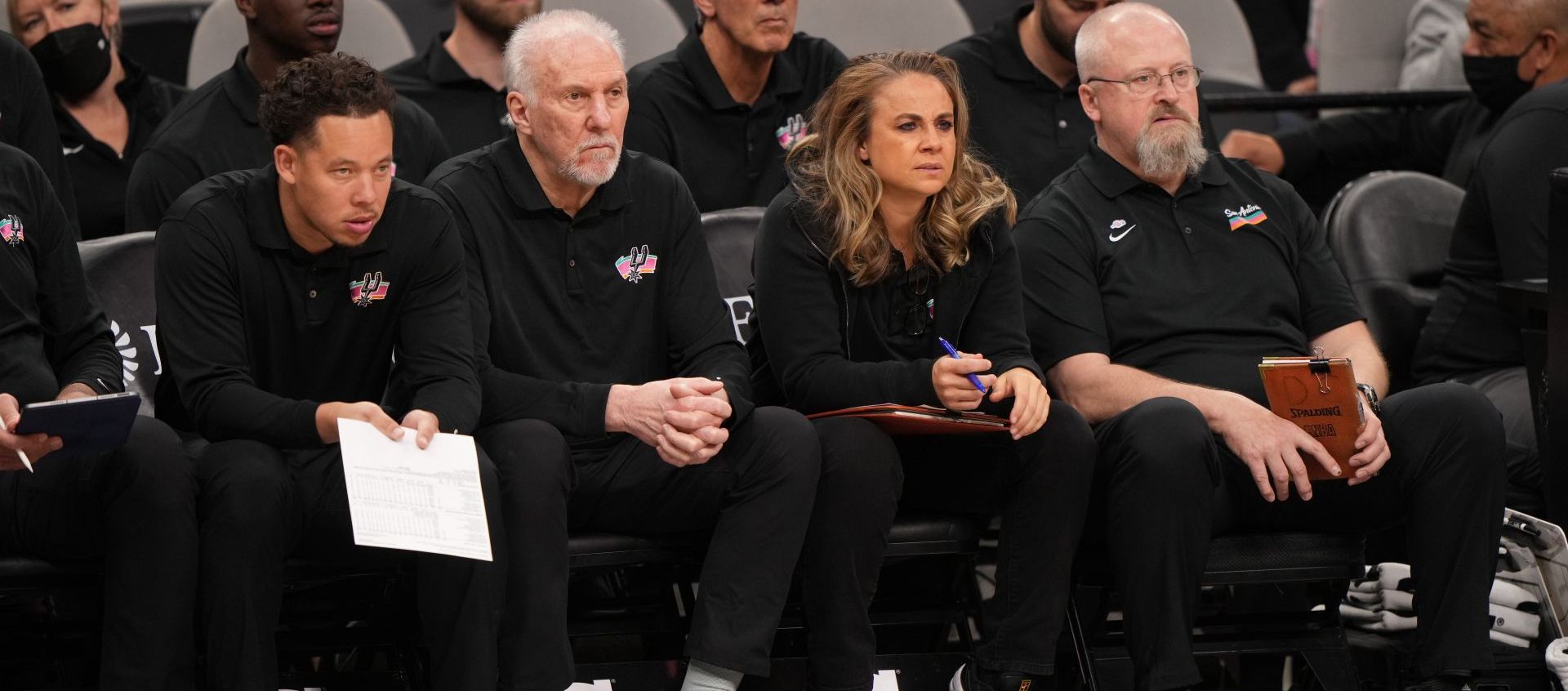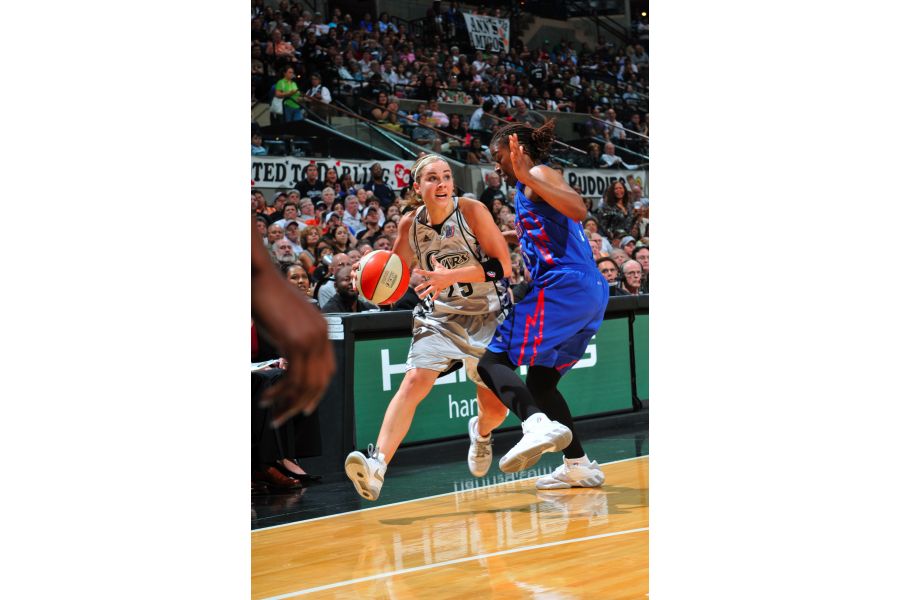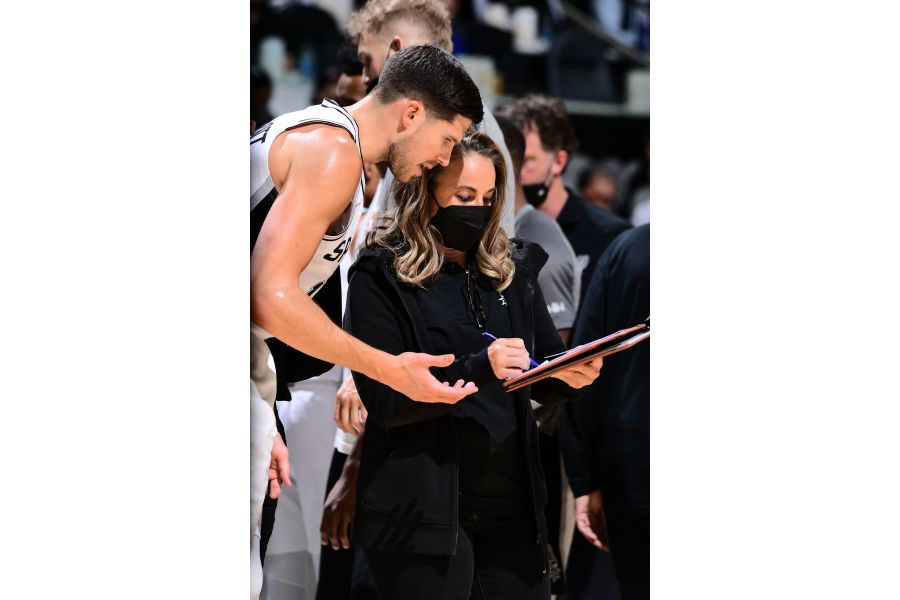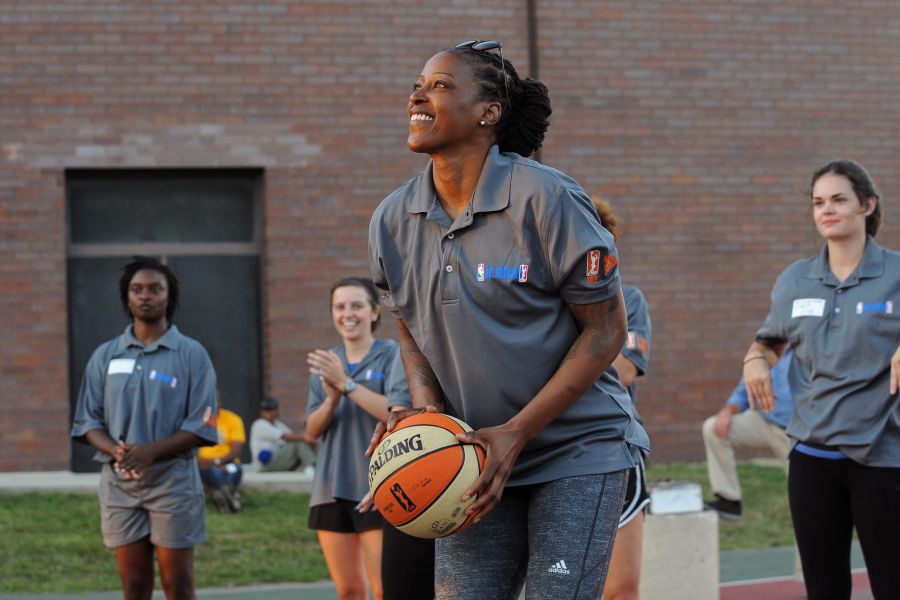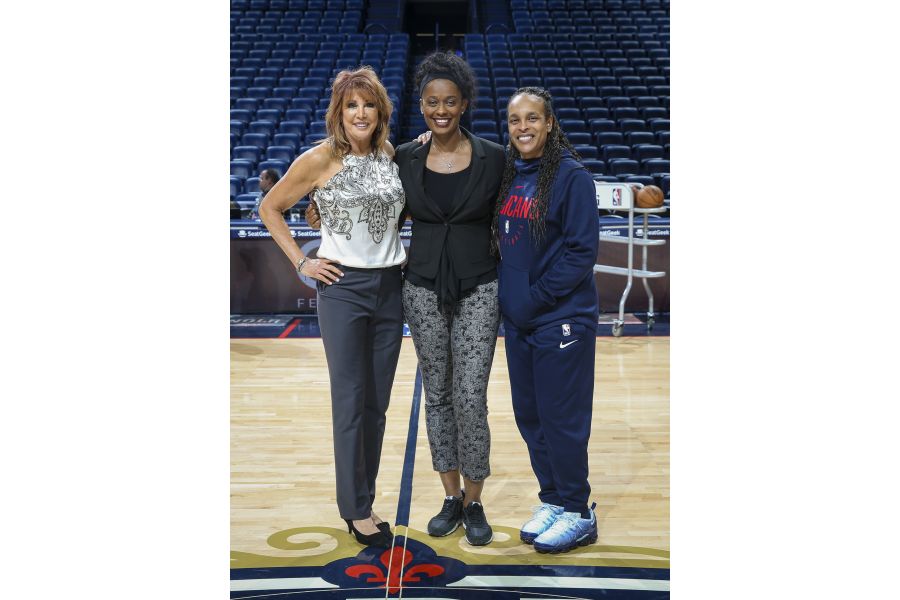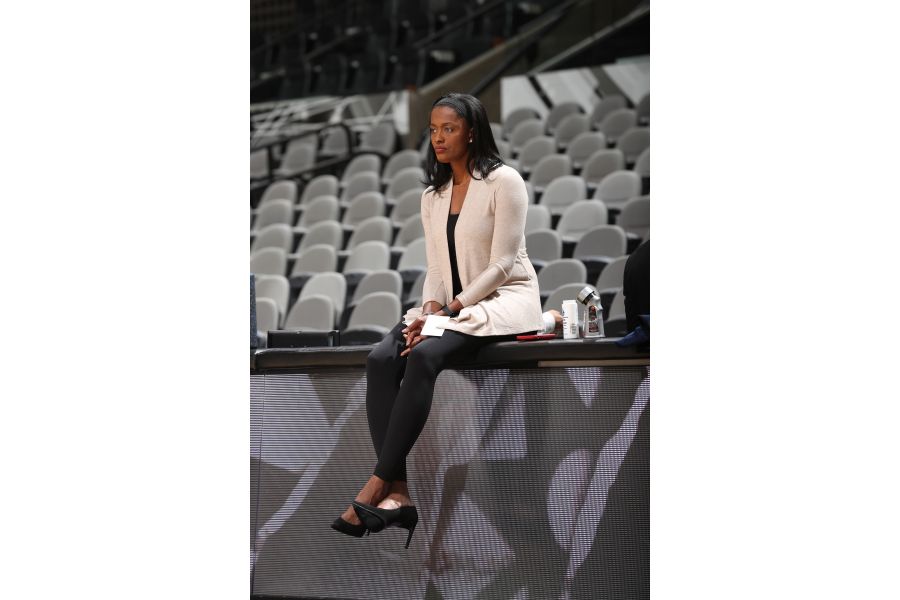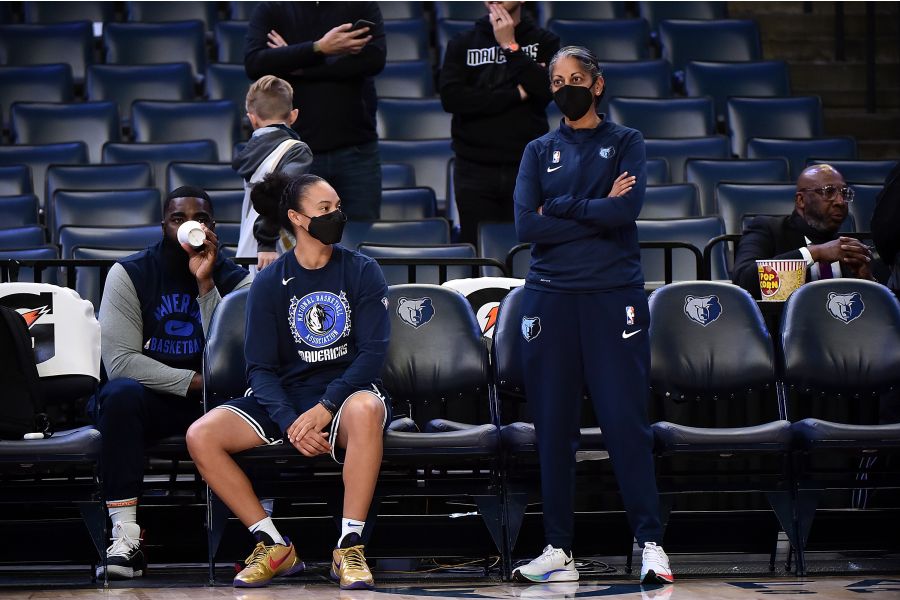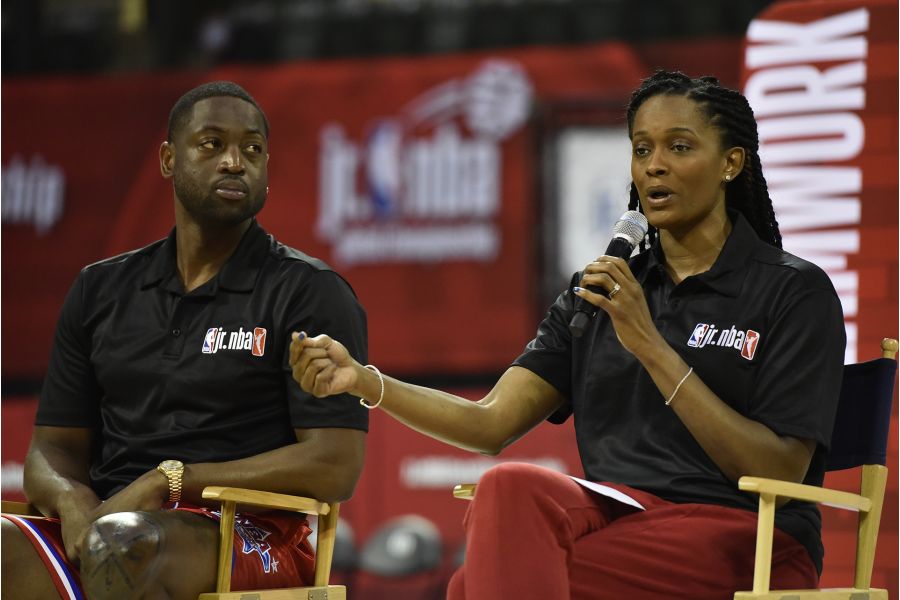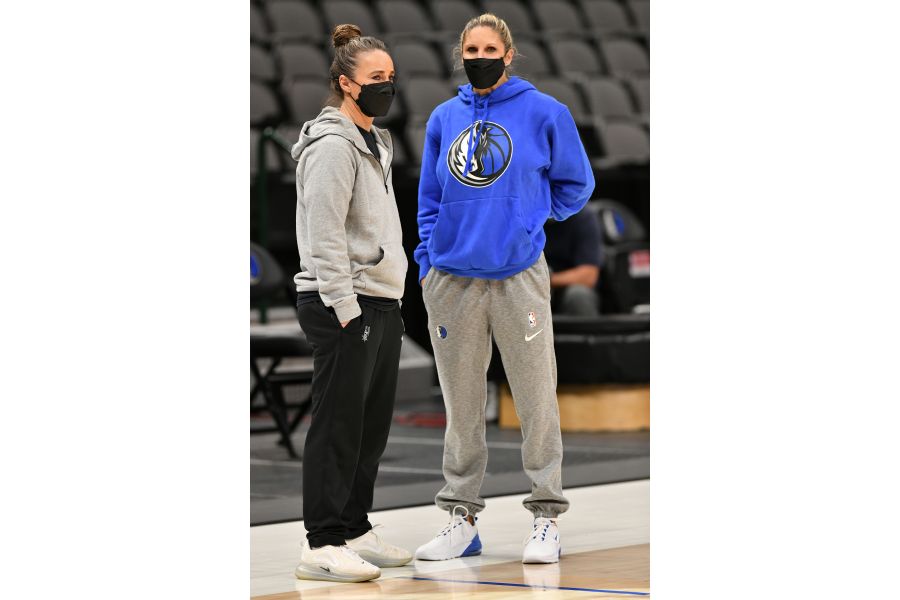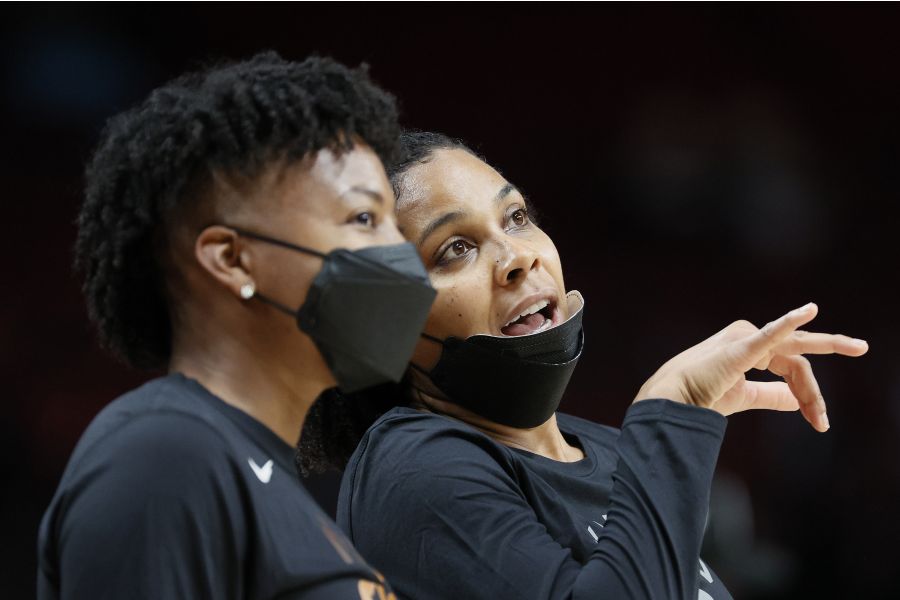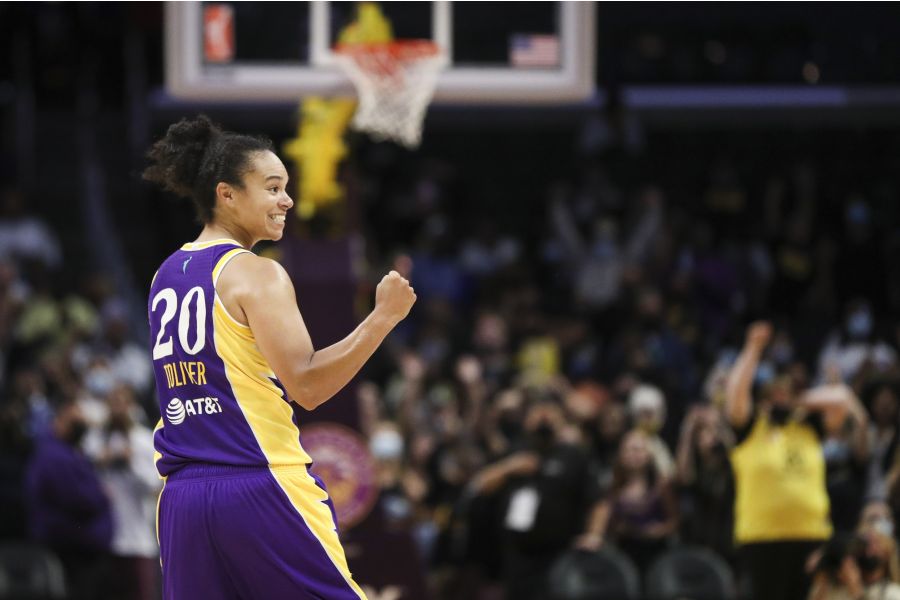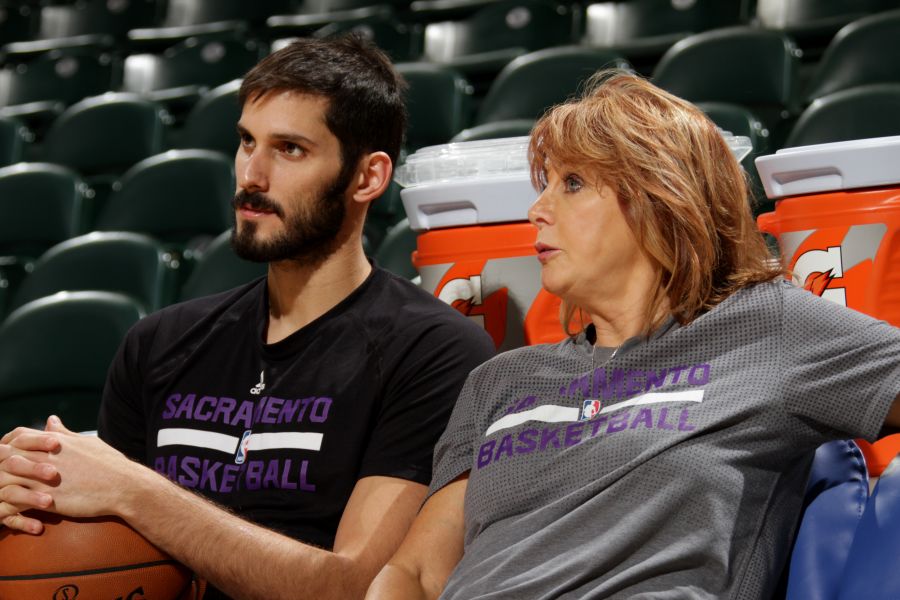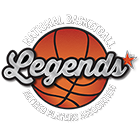Head coach Gregg Popovich of the San Antonio Spurs sits with assistant coaches, Mitch Johnson, Becky Hammon and trainer, Will Sevening on March 11, 2022 at the AT&T Center in San Antonio, TX.
When Becky Hammon accepted the head coach position with the Las Vegas Aces, many cheered her ascension to the top chair and the $1 million annual salary that came with it. But, given her tenure with the San Antonio Spurs, there was an undercurrent of worry in some circles as many saw Hammon as the best chance yet for a woman to hold an NBA head coaching job for the first time.
Hammon pushed back on that, forcefully, in a Zoom with the media shortly after taking the job. “I think it’s an ignorant statement. To think I’ve outgrown the WNBA in a coaching capacity is ridiculous,” she said. “I’d rather be a coach in the WNBA and have my own organization and be running a team.”


